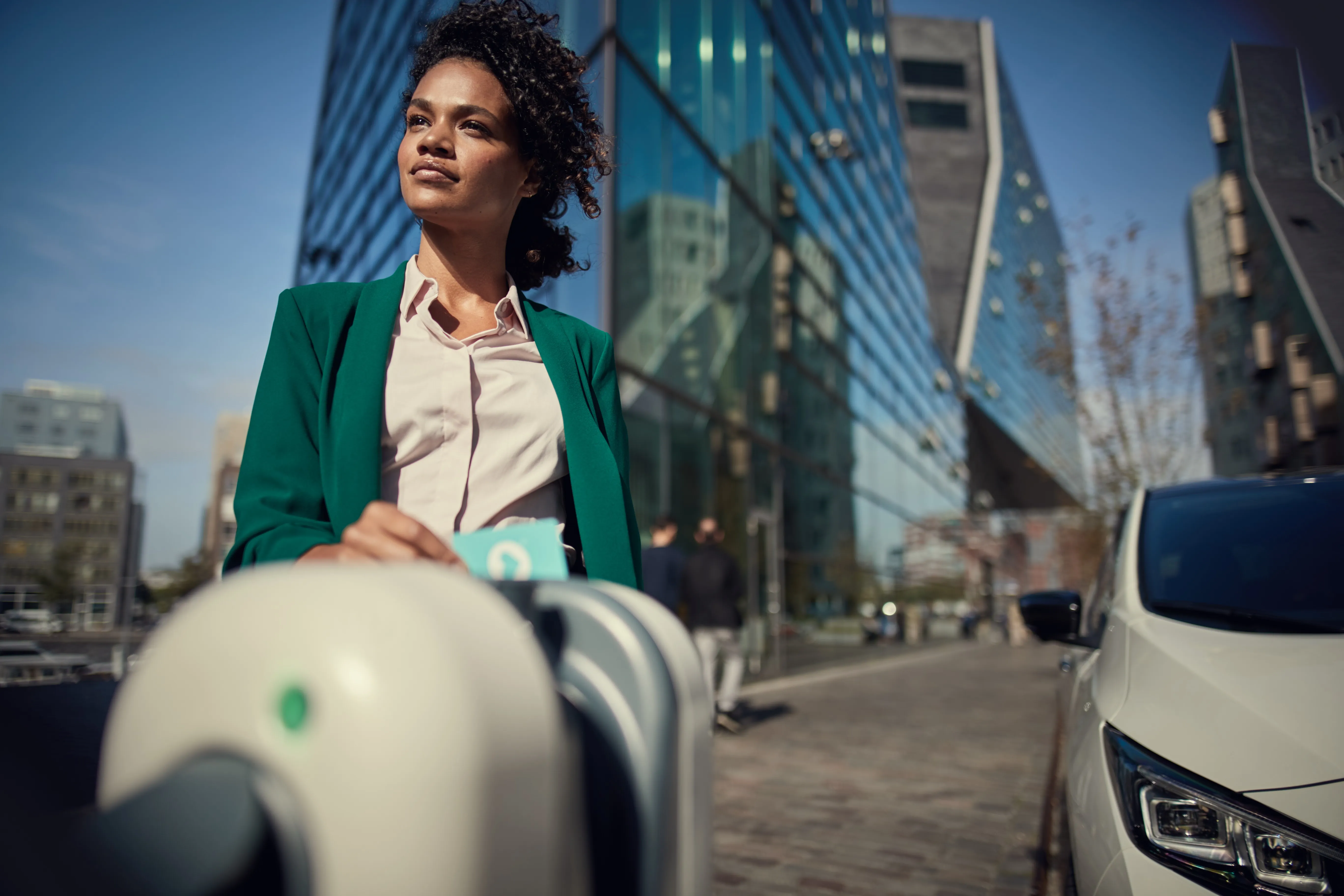The American parking industry is backing a government initiative to expand electric vehicle charging stations in the workplace. The International Parking Institute (IPI) has become a founding ambassador in the US DoE’s Workplace Charging Challenge, the latest element of the EV Everywhere Grand Challenge, announced by Secretary of Energy Steven Chu at the recent Washington Auto Show’s Public Policy Day. The Workplace Charging Challenge is assisting the growth of plug-in electric vehicles (PEVs) by urging emp
February 1, 2013
Read time: 2 mins
The American parking industry is backing a government initiative to expand electric vehicle charging stations in the workplace.
The International Parking Institute (IPI) has become a founding ambassador in the US DoE’s Workplace Charging Challenge, the latest element of the EV Everywhere Grand Challenge, announced by Secretary of Energy Steven Chu at the recent Washington Auto Show’s Public Policy Day.
The Workplace Charging Challenge is assisting the growth of plug-in electric vehicles (PEVs) by urging employers to install charging stations at workplaces. Widening the availability of charging stations at places of employment will support the broader goal of the EV Everywhere Grand Challenge, announced by President Obama last year, which aims to enable U.S. companies to be world leaders in producing PEVs by making them as affordable and convenient as gas-powered vehicles for the average American family.
In his keynote speech at the Washington Auto Show, Chu said: “The market for electric vehicles is expanding dramatically, giving drivers more options to save money on gasoline while reducing carbon pollution.”
Earlier in the day Casey Jones, CAPP, chairman of the IPI, the world’s largest association of parking professionals and the parking industry, joined other founding ambassadors, partners, and senior administration officials in a Workplace Charging Roundtable in Washington, D.C.
Workplace Charging Challenge founding partners include1691 Google, 1984 Verizon, 4080 3M, Eli Lilly, 940 GE, 189 Siemens, 1755 Duke Energy, San Diego Gas & Electric, 1958 Chrysler, 278 Ford, 1959 GM, 838 Nissan, and Tesla.
In addition to the IPI, Workplace Charging Challenge founding ambassadors include The California PEV Collaborative, CALSTART, Electric Drive Transportation Association, Electrification Coalition, NextEnergy, Plug In America, and the Rocky Mountain Institute.
“I believe that by working collectively, we can transform the way employers view their role in supporting PEV use and take a huge leap forward in protecting our environment,” said Jones.
The International Parking Institute (IPI) has become a founding ambassador in the US DoE’s Workplace Charging Challenge, the latest element of the EV Everywhere Grand Challenge, announced by Secretary of Energy Steven Chu at the recent Washington Auto Show’s Public Policy Day.
The Workplace Charging Challenge is assisting the growth of plug-in electric vehicles (PEVs) by urging employers to install charging stations at workplaces. Widening the availability of charging stations at places of employment will support the broader goal of the EV Everywhere Grand Challenge, announced by President Obama last year, which aims to enable U.S. companies to be world leaders in producing PEVs by making them as affordable and convenient as gas-powered vehicles for the average American family.
In his keynote speech at the Washington Auto Show, Chu said: “The market for electric vehicles is expanding dramatically, giving drivers more options to save money on gasoline while reducing carbon pollution.”
Earlier in the day Casey Jones, CAPP, chairman of the IPI, the world’s largest association of parking professionals and the parking industry, joined other founding ambassadors, partners, and senior administration officials in a Workplace Charging Roundtable in Washington, D.C.
Workplace Charging Challenge founding partners include
In addition to the IPI, Workplace Charging Challenge founding ambassadors include The California PEV Collaborative, CALSTART, Electric Drive Transportation Association, Electrification Coalition, NextEnergy, Plug In America, and the Rocky Mountain Institute.
“I believe that by working collectively, we can transform the way employers view their role in supporting PEV use and take a huge leap forward in protecting our environment,” said Jones.








